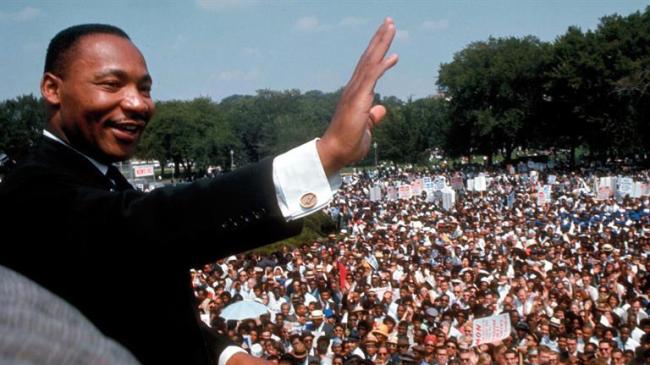By Lee Downen

“All men are created in the image of God…God, as everybody knows, is not a Negro. Therefore, the Negro is not a man,” said Martin Luther King, Jr. in his 1966 appearance at SMU, describing the erroneous and depraved logic of segregationists.
As we celebrate the life and work of Dr. King—and rightly so—let us remember what he grounded his belief in the inherent dignity and worth of all peoples upon: the imago Dei.
The imago Dei is the Christian doctrine that all people, regardless of race, gender, class, disability or any other identifier, are made in the image of God, which is why they inherently have dignity and worth. Christians find support for this teaching, among other places, in Genesis 1:26-27, where God says, “Let us [the Trinity] make man in our image, after our likeness.”
The imago Dei is central to the grounding of human rights, for without it, as Nietzsche recognized but did not accept, there can be no objective moral claim that all lives matter. To disconnect human rights from the reality of a sovereign, transcendent, holy God—as is the intellectual fashion of today—is to destroy the very foundation upon which those rights rest.
Martin Luther King, Jr. recognized that the major and minor premises of the segregationist’s argument are true, but the conclusion does not follow. All people are created in the image of God, and God is not black—but He’s not white either. “God is Spirit,” said Jesus in the Gospel of John. He is infinite, not bound by time or space.
The proper addendum of the minor premise is that, while God is not black, He did create black people, as well as every other ethnicity, and He alone, to quote the Apostle Paul, “gives to all mankind life and breath and everything.”
This great, precious doctrine—the imago Dei—is what Martin Luther King, Jr. grounded his beliefs upon, and it is what fueled his untiring efforts to see all people recognized and treated as they are, as equal.
As we celebrate the life and work of Martin Luther King, Jr., let us remember this truth: the equality of all persons rooted in their being made in the image of God.
In his speech to a standing-room-only crowd in the 2700-seat McFarlin Auditorium, Dr. King said, “The Negro [because of events in the 20th century] came to feel that he was somebody. His religion revealed to him that God loves all of his children and that all men are made in his image and that the basic thing about a man is not his specificity but his fundamentalness [sic], not the texture of his hair or the color of his skin but his eternal dignity and worth. So the Negro can now consciously cry out with the eloquent cohort; Fellata [sic] looks and black complexion cannot forfeit nature’s claim. Skin may differ but affection dwells in black and white the same.”
Indeed and amen.








